Two hundred 12th grade students from six secondary schools in the Algarve, as well as several guests, participated this Thursday, March 24, in the initiative “17 500 days in Democracy”, at Escola Secundária João de Deus, in Faro.
Promoted by the Regional Directorate of Culture of the Algarve, with the support of the DGEstE-DSR Algarve and several schools in the region, the session celebrated the day that marks one more day than those lived in dictatorship during the Estado Novo, and recalling what cost freedom.
The song “Os Homens que vai à Guerra”, by Fernando Lopes Graça, performed by the choir of students from the Bemposta Schools Group, in Portimão, started a session filled with cultural moments and the sharing of testimonies of those who lived and fought for freedom.
The students of the professional course of contemporary dance interpreter, from Escola Tomás Cabreira, presented a choreography created for this day. On the occasion, a film made as part of the commemorations of the 50th anniversary of the 25th of April was also shown.
The guest panel, moderated by the regional director of Culture of the Algarve, Adriana Freire Nogueira, shared with the two hundred students present, memories of their experience during the Dictatorship.
Thus, Luís Villas-Boas spoke about his intervention in the Colonial War and, already as a captain, in the Armed Forces Movement; Carlos Albino, the journalist who prepared the broadcast where the password that started the 25th of April was released, spoke of the context that preceded the need for the revolution; Liliana Palhinha highlighted the differences in society that freedom brought us and told how, at age 19, in Lisbon, when she was distributing leaflets against the regime, she was arrested and only released on 26 April 1974; singer-songwriter Afonso Dias, who was a member of the Constituent Assembly, highlighted article 13, the principle of equality, as the heart of the Constitution.
Finally, the journalist Elisabete Rodrigues spoke about censorship, presenting the Jornal do Fundão case, a paradigmatic case of the regime's censorship action and how the press tried to circumvent this lack of freedom.
The interventions were interspersed with the reading of texts alluding to the resistance to the dictatorship, by the students of the Professional Theater Interpreter Course
The session ended with the presentation of photographs, by Diogo Margarido, of murals from the revolutionary period, and with the song, also, by Fernando Lopes Graça “Acordai”.
At the end of the session, the emotion was felt.
About his participation in this celebration, Luís Vilas Boas said that this “is an experience that helps the youngest to understand and hear about situations that, perhaps, do not appear in the books: details of our struggle as captains of April to end the regime , end the war, end the deaths”.
Liliana Palhinha stated that it had been “an exciting day”, being even more emotional than she had anticipated: “More than ever, I have been saying it for a long time, but now it is more visible. Nothing is guaranteed. We must continue to fight for freedom”.
Carlos Albino declared: “My feeling is of great emotion, because it is important for all of us, because if it was just for some it would be very bad. I hope it continues to be for all of us”.
For Afonso Dias, the “balance is positive, due to the fact that we have one more day of freedom than of dictatorship. The session was wonderful for the cultural richness they presented, with excellent elements. Freedom first and foremost.”
Elisabete Rodrigues said that “this was a session that often left me emotional, with tears in my eyes, because there were people there who had a role in history, but they were mainly young people who show that, 48 years later, the 25th of April still has great importance. meaning, and translated it in the way they reacted in performances, singing, declaiming and acting. Being able to express ourselves in freedom is priceless”.
For her part, Adriana Freire Nogueira, Regional Director of Culture, gave an extremely positive assessment of the session: “Students and teachers adhered to the challenge that was thrown at them and the result they presented to us was of high quality”.
“In addition to the emotion they made us feel, the excellence of their presentations is to be commended. All of them. There were times when tears came to my eyes. On the other hand, being able to hear who is 'living history', who participated in that historic moment that allows us to live in democracy and freedom, was another great emotion. Thank you!” she added.
Outside, during the time the session took place, the students of the multimedia workshop at Escola Secundária Tomás Cabreira built a mural, in which, later, there were spontaneous interventions by the participants.
Communication students from Escola Secundária João de Deus supported and recorded the event.
Finally, the students of the Cooking and Pastry course, from the Pinheiro e Rosa School Group, presented a meal of excellence to the guests.
The meeting was attended by the councilor of the Municipality of Faro, Teresa Santos, the IPDJ regional director, Custódio Moreno, the DGEstE regional delegate, Alexandre Lima, the director of the João de Deus School Group, Carlos Luís, the director of the Tomás Cabreira School Group, Ana Paula Marques, the director from the Pinheiro e Rosa School Group, Francisco Santos, the director of the Bemposta School Group, Sandra Tenil, and the students of João de Deus secondary schools (Faro), Tomás Cabreira (Faro), Bemposta (Portimão), Pinheiro and Rosa (Faro), Francisco Fernandes Lopes (Olhão) and José Belchior Viegas (S. Brás de Alportel).
Photo Credits: DRCAlg and Sul Informação
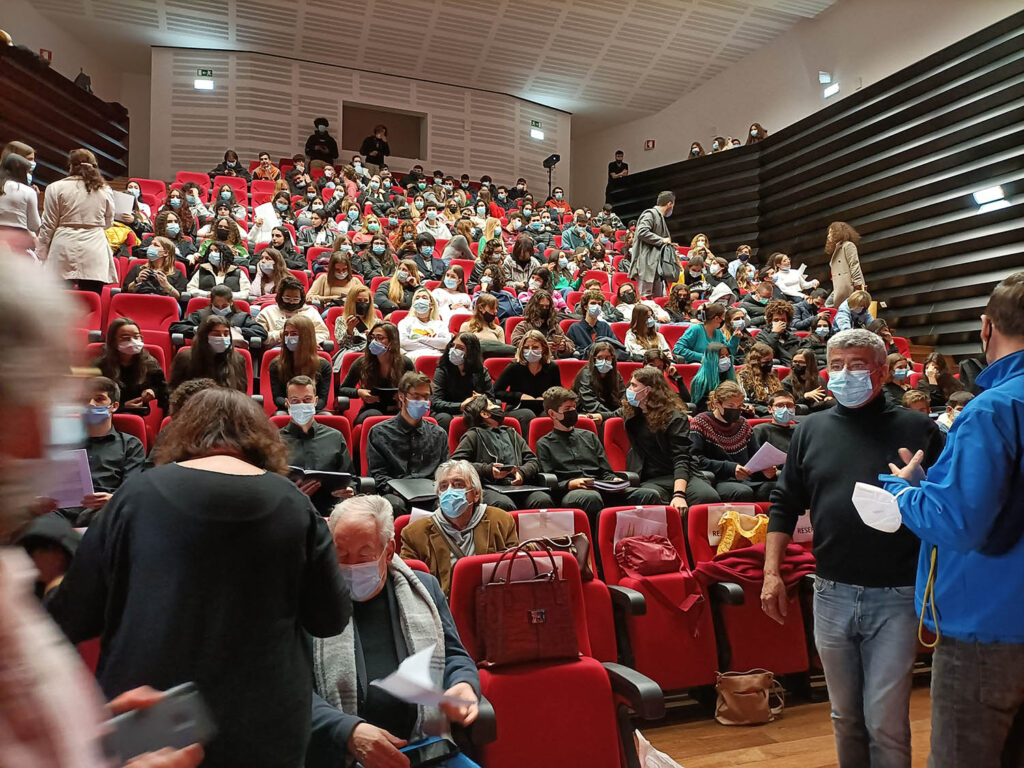
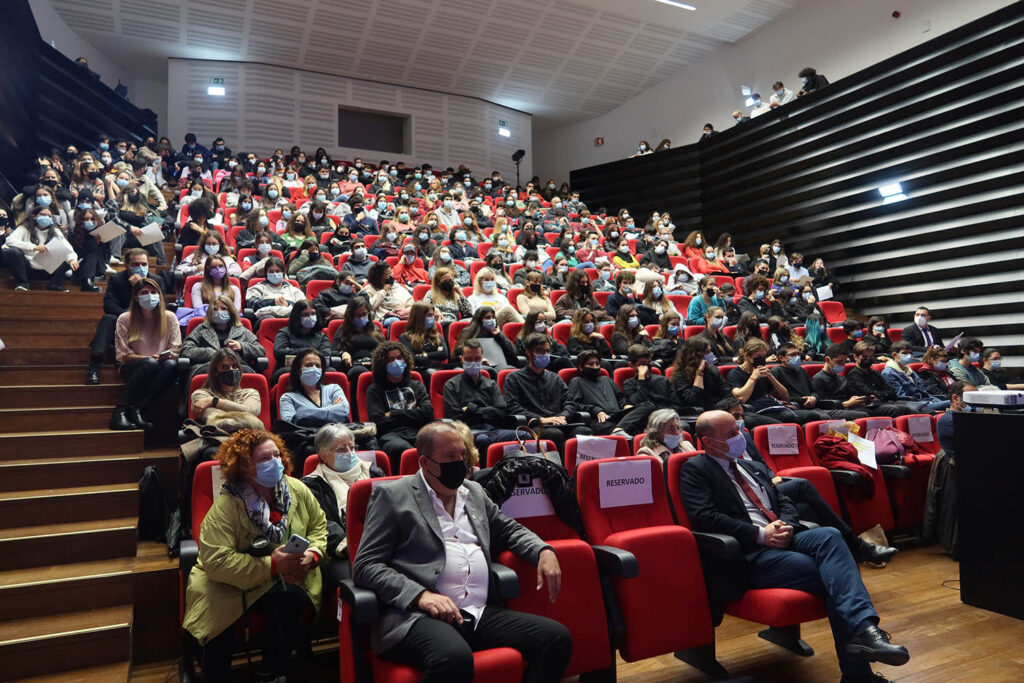
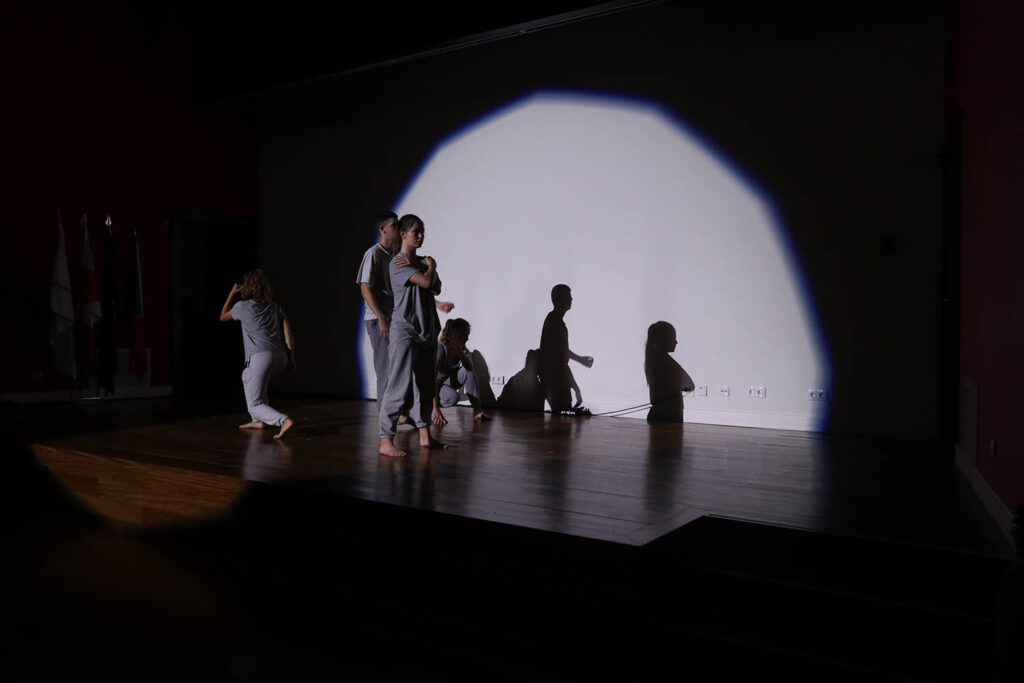
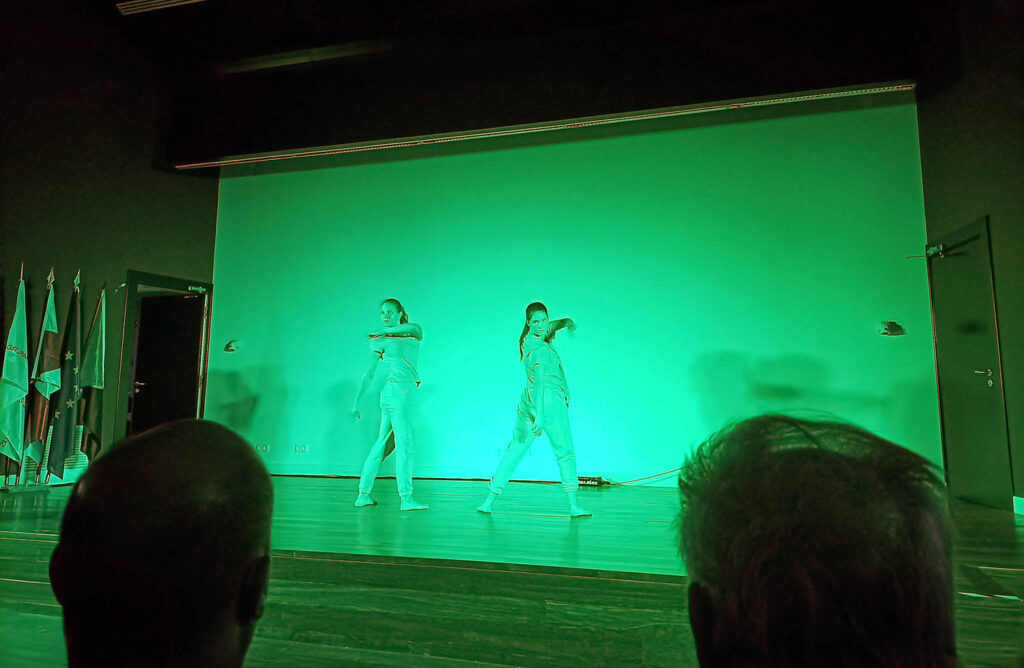
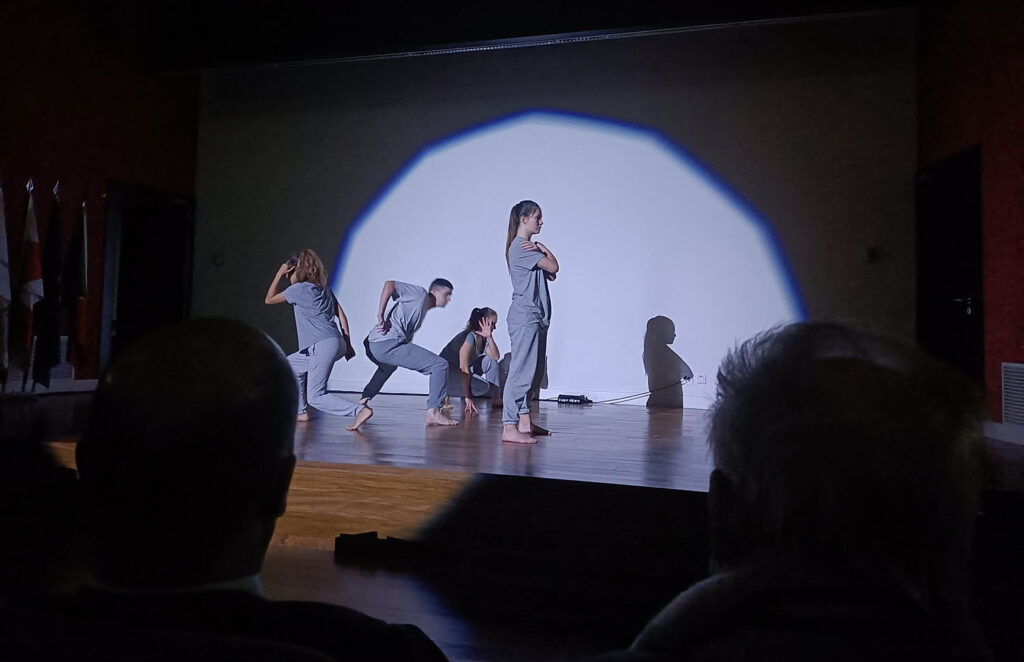
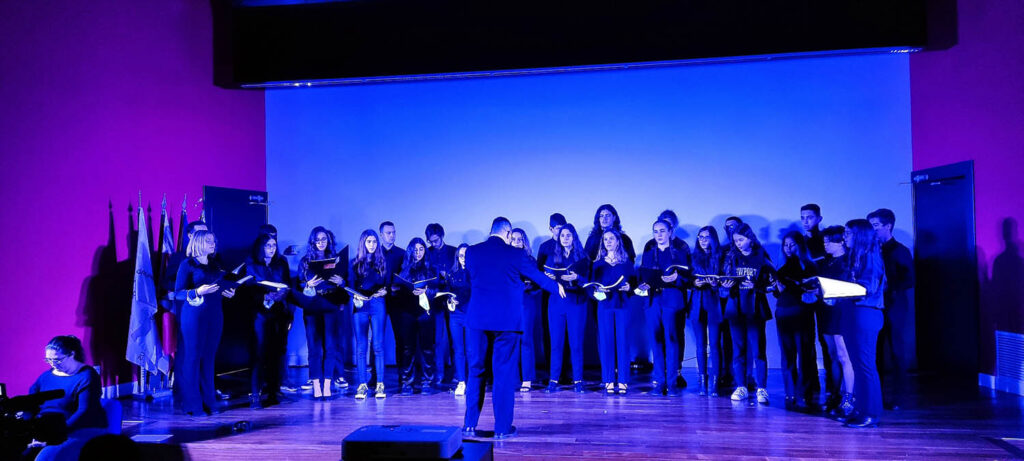
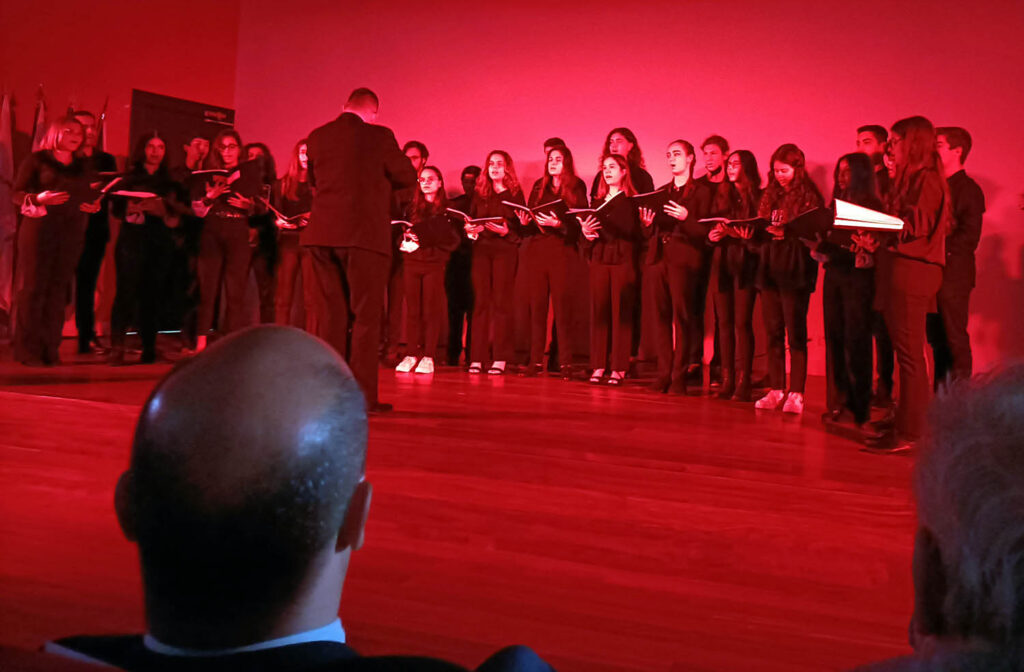
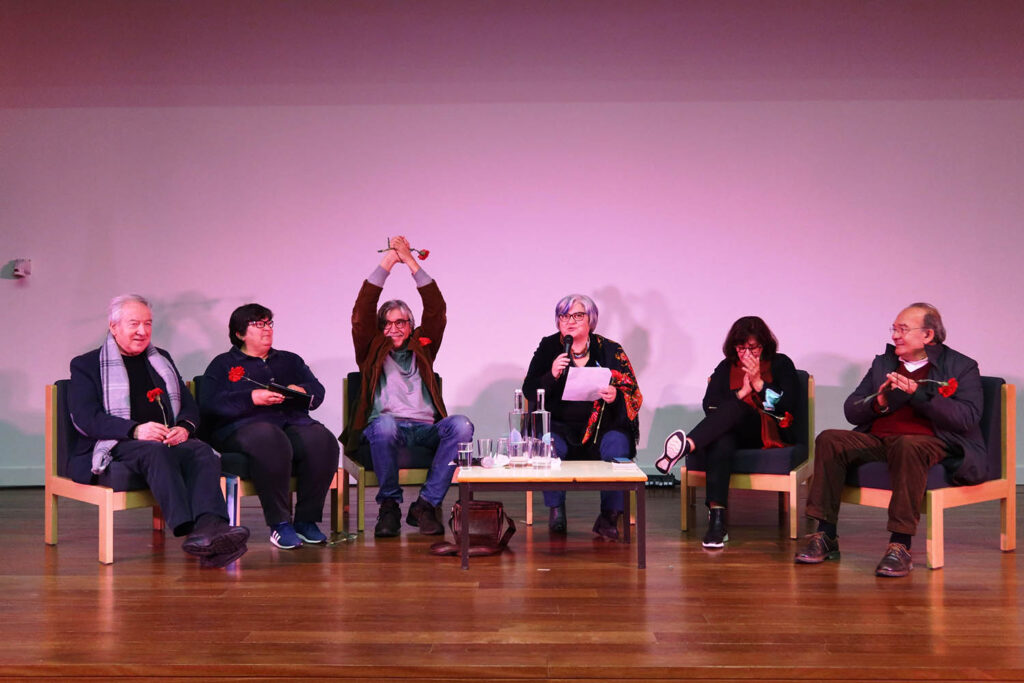
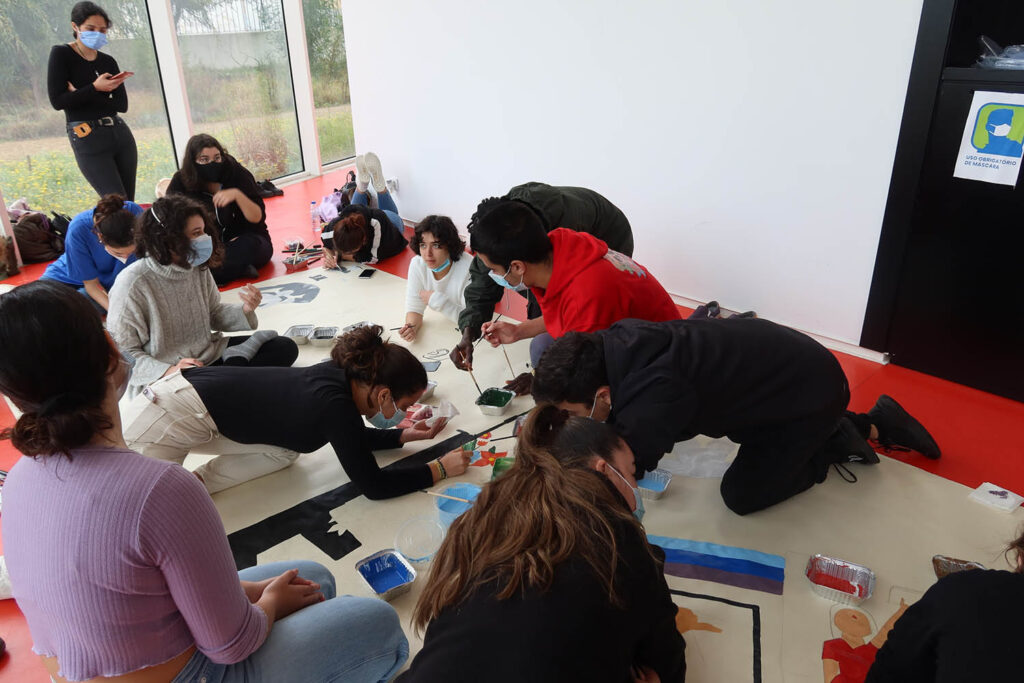
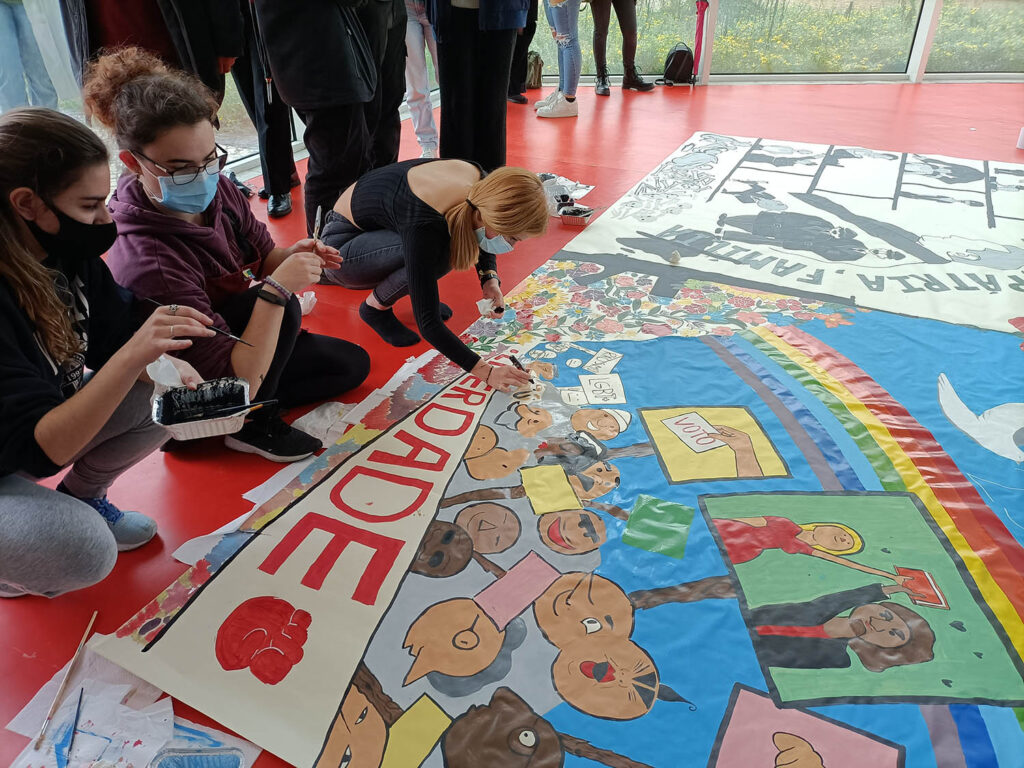
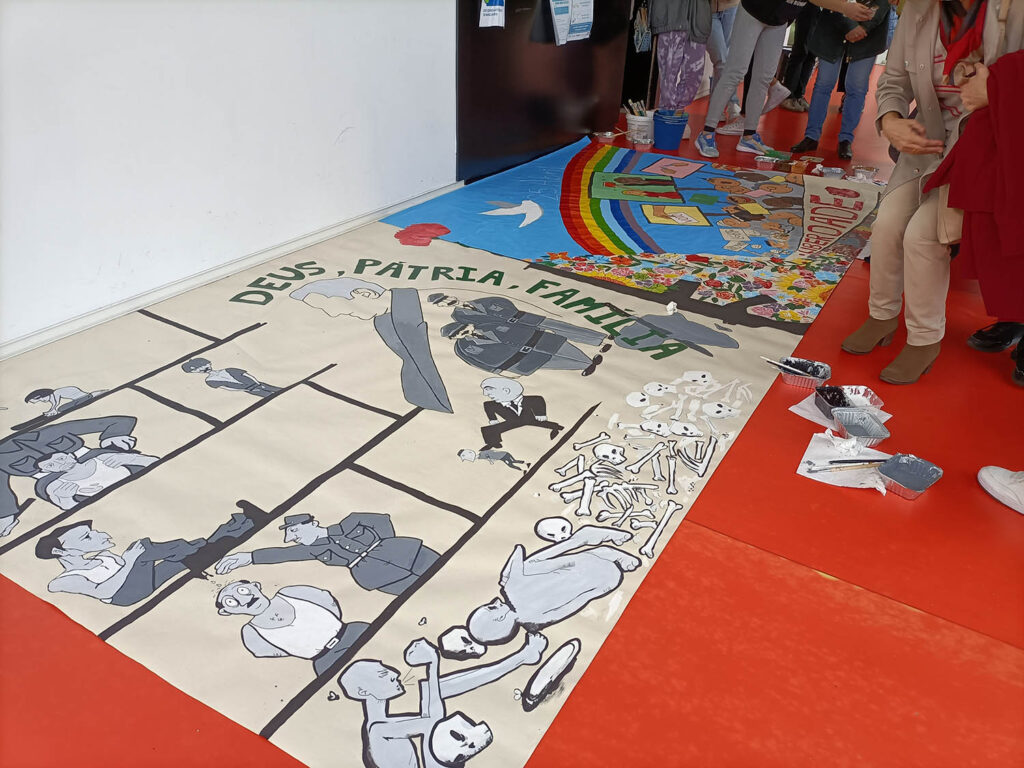
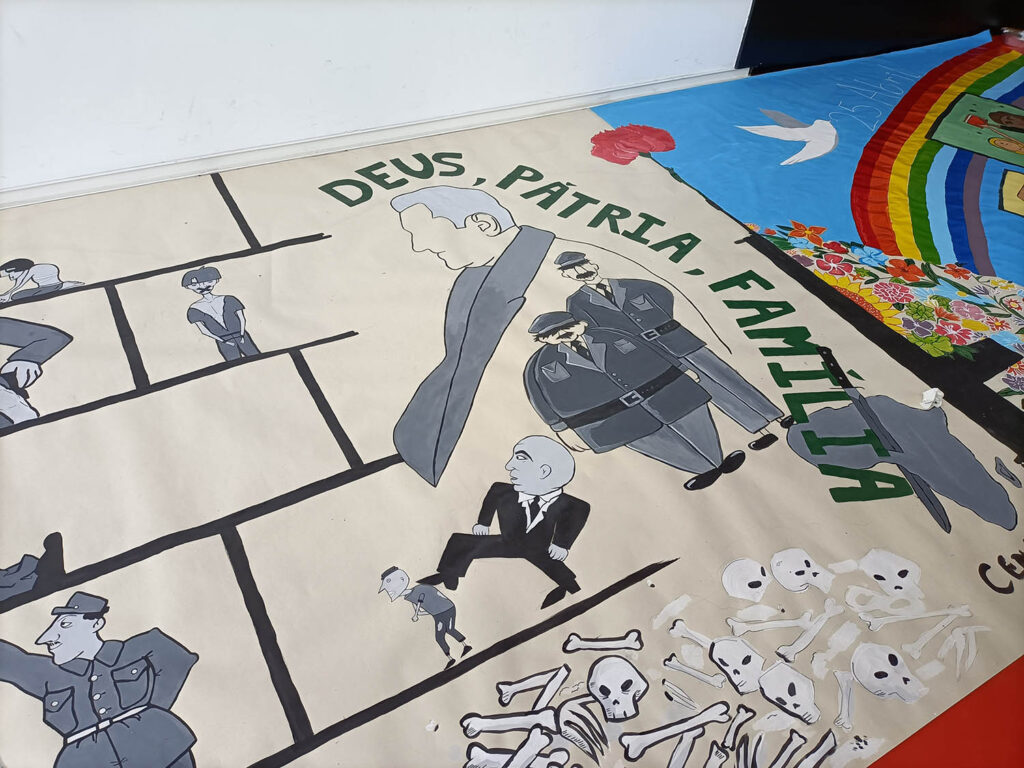
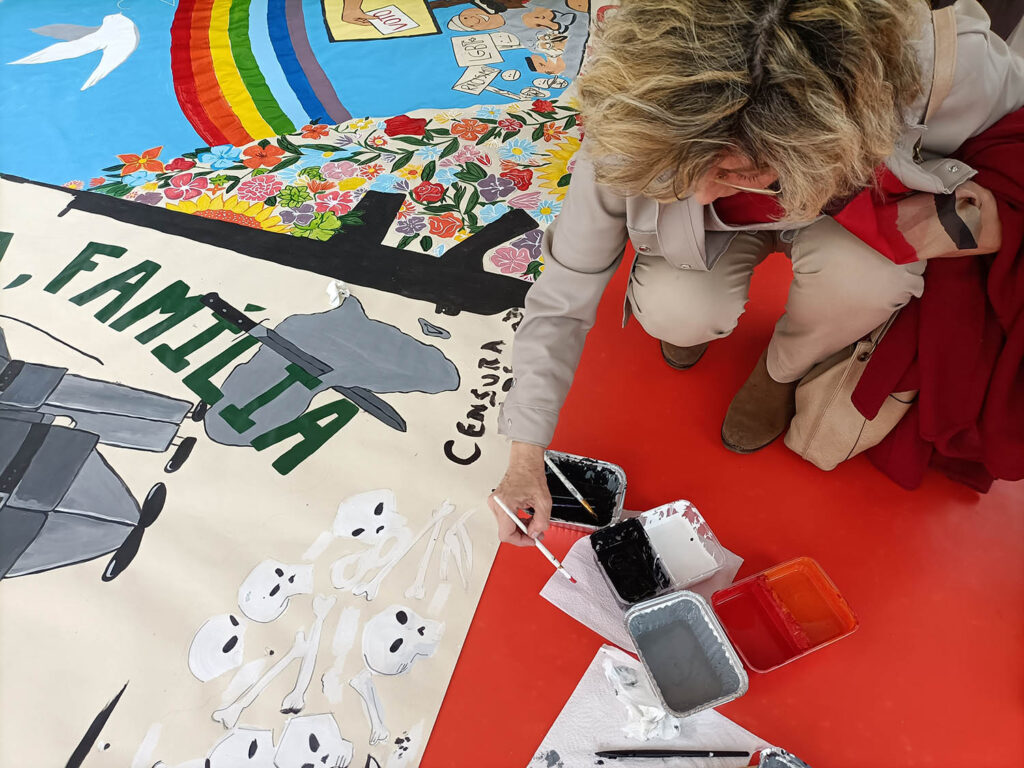
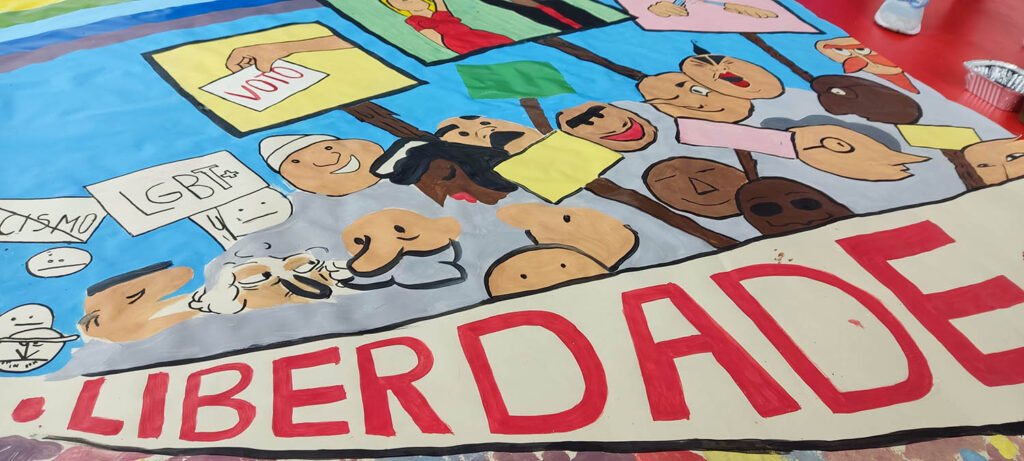



















Comments